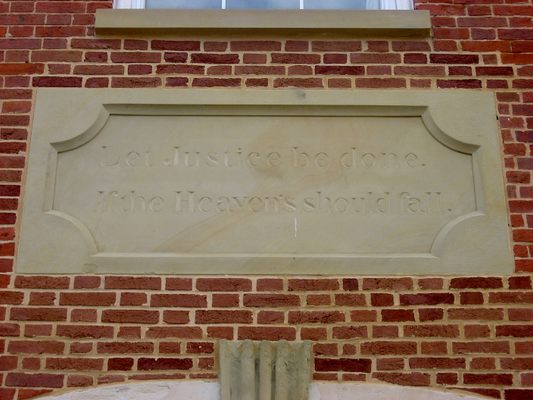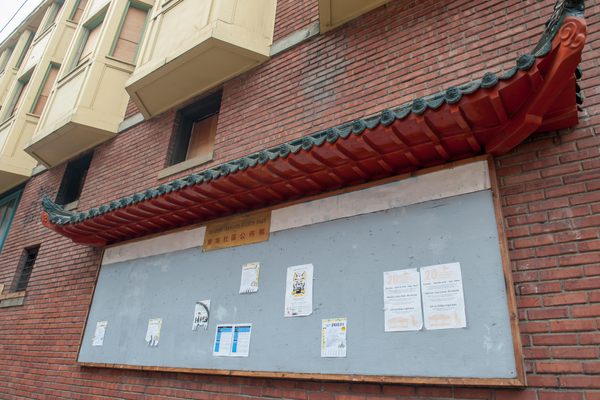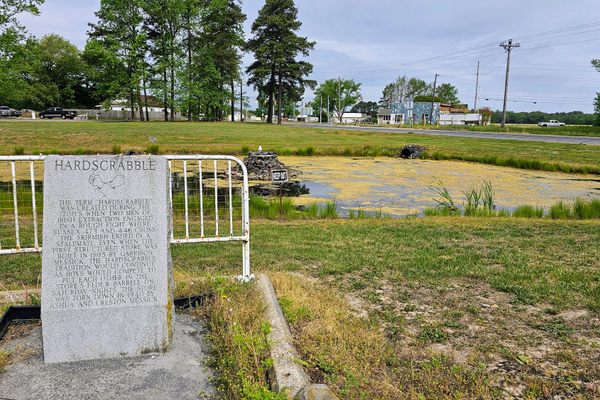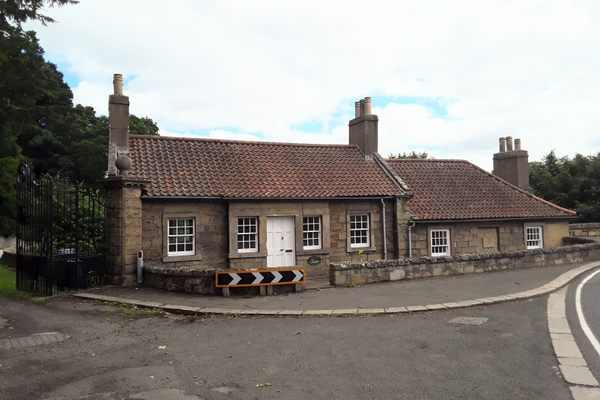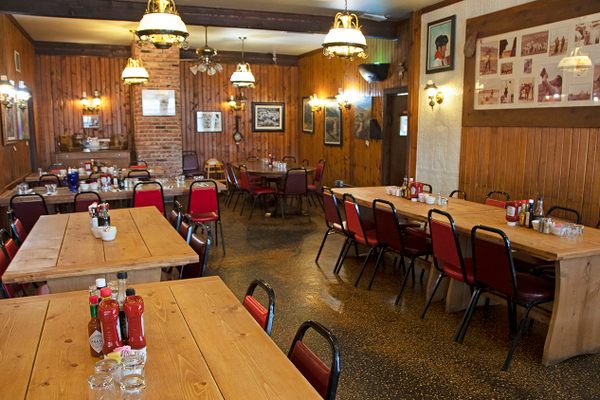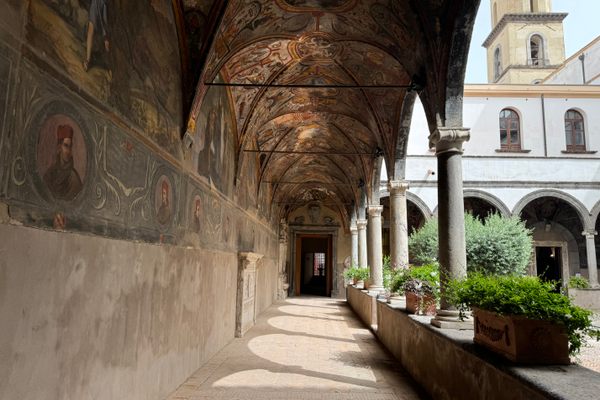About
Perry County's original courthouse stands across the town square from the statue of Union Army cavalry hero General Philip Sheridan. With its distinctive steeple and Federal-style architecture—stately, simple, and red-bricked—the courthouse has seen a lot of history since it was finished in 1829. But to this day, the building has been most noted, studied, celebrated, and derided for the inscription over its doorway: "Let Justice be done. If the Heavens should fall."
For almost 200 years this clunky, nonsensical phrase has adorned a court of law and (anecdotally) provided local English teachers with an accessible example of what not to do when constructing a sentence. The most glaring problem with the inscription is that it shouldn't be two sentences; the period after "done" should clearly be a comma.
Clement Luther Martzolff explains it well in the History of Perry County, Ohio. "It is a case wherein considerable reading between the lines can be indulged," he writes. "If the period after the word 'done' be changed to a comma, as was evidently the intention, we are left in a considerable quandary as to the time when justice will prevail. If the period be allowed to remain, then we have two sentences. The first one sounds very well and is a noble sentiment. Then after the second sentence we are obliged to place an exclamation point, all of which then seems to convey the idea, that the justice therein administered, was such a rarity, that when it was rendered, the heavens would certainly collapse."
It seems likely that the courthouse inscription was supposed to reference the Latin phrase, Fiat justitia ruat caelum, which, correctly translated, means, "Let justice be done though the heavens fall." The phrase is supposed to assert that justice should always be administered, no matter the circumstances or consequences. But somehow when the English version of this noble philosophy was chiseled onto the Perry County courthouse in 1829, something went terribly wrong.
The question of how such a permanent error might have occurred has spawned a number of myths, often referencing ethnic stereotypes about the European immigrants making their homes in Perry County at the time. One account attributes the inscription to a clever German and an elaborate, slow-burn revenge plot.
Henry C. Greiner, in his biography of General Sheridan, writes that before the courthouse was built, a well-educated German immigrant arrived in Somerset. He became involved in a lawsuit, and was surprised when the judge ruled against him, which he saw as unfair. A year later, the new courthouse was finished, and local officials, including the aforementioned judge, were trying to decide what should be inscribed over its doorway. Since no one could agree on a proper phrase, someone suggested that the German immigrant—with his knowledge of philosophy, literature, and several languages—should be consulted. The German was flattered at the idea, but made one request: that the judge take credit as the author of the inscription.
Or course, the local judge would soon regret this agreement. As Greiner writes: "The lettering was done, the huge stone hoisted to its place, and the building completed, but the error was not discovered until the following year. The judge was reminded of it so often that he became disgusted and moved West, but the German, as he passed, would often look up at that inscription, solemnly smile at the sarcasm, and say: 'It ish true! It ish true!'"
Thus the mysterious inscription on the Old Perry County Courthouse becomes part of a uniquely American fairy tale, in which a trickster immigrant gains the upper hand over the government official who wronged him. To the German man, at least, it probably seemed as if justice had been done, though the heavens fell on someone else.
Related Tags
Know Before You Go
There is an additional grammatical error-there shouldn’t be an apostrophe before the s in heavens
Published
May 29, 2018
